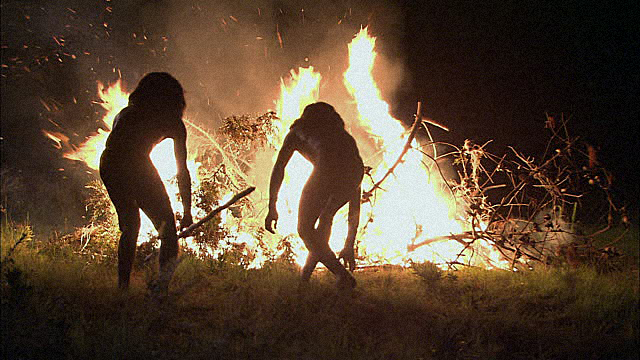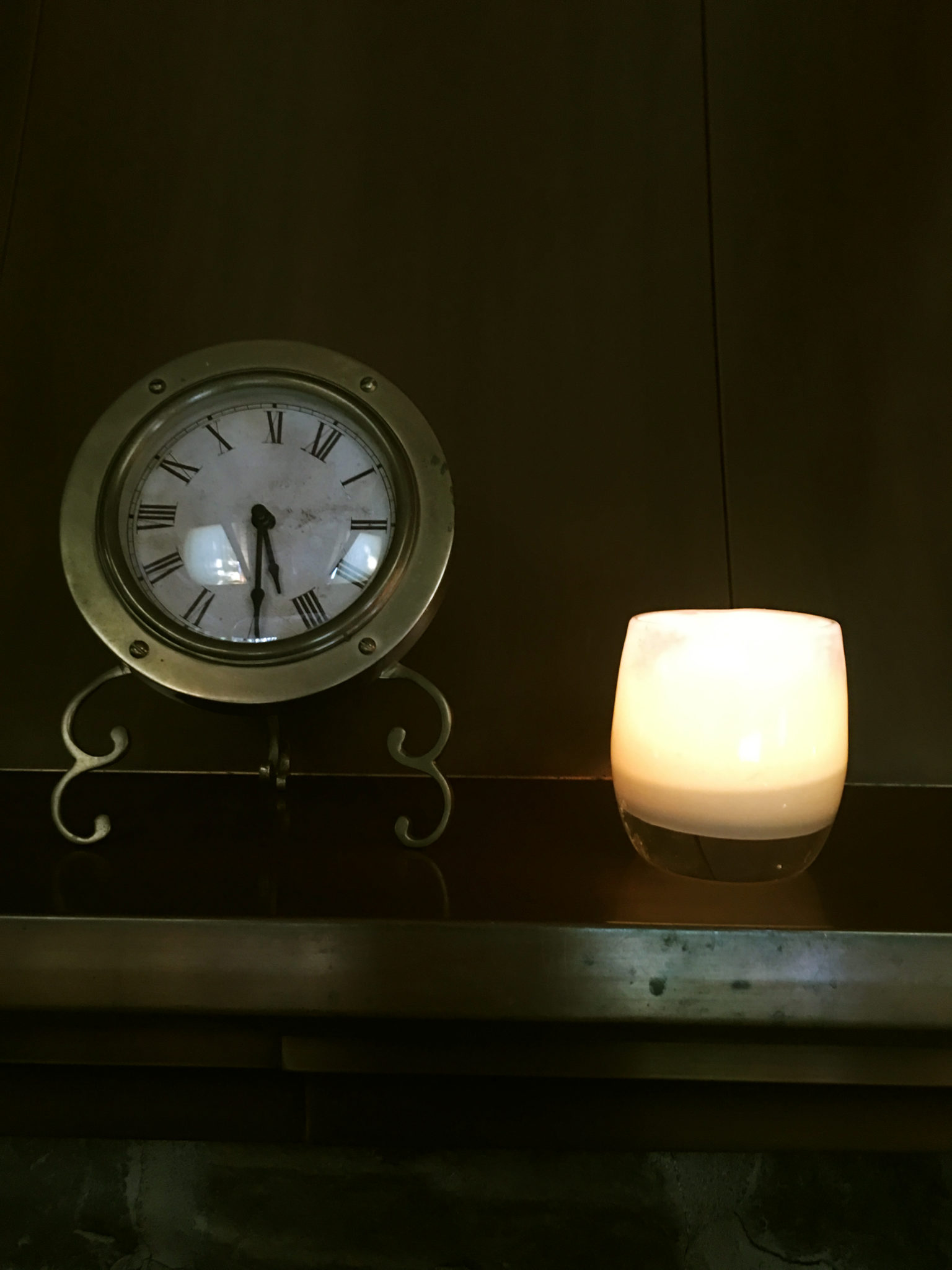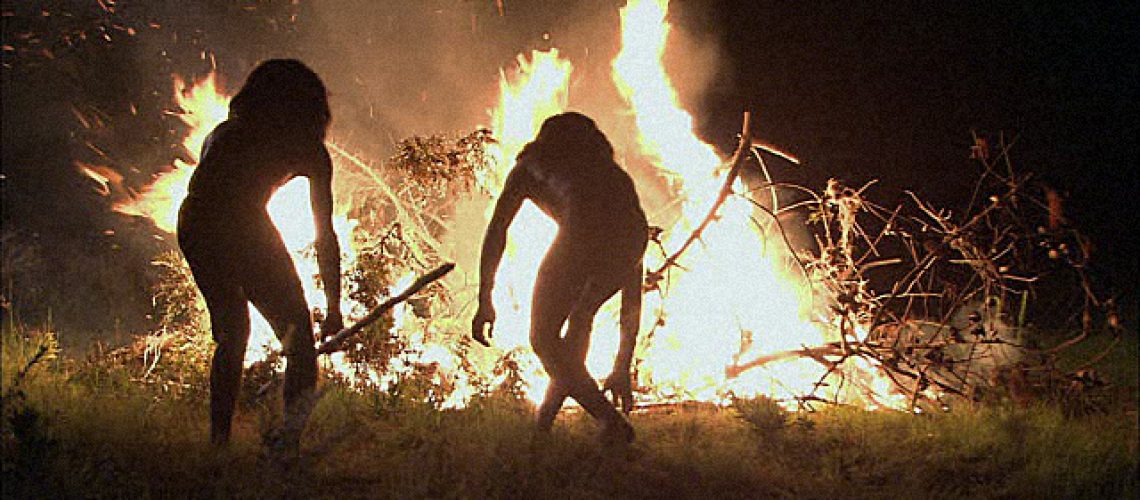The Fire and the Flame
Even today, fire means survival. Whether real or emotional, it’s a necessary fuel for our daily actions. There is no fire without the initial flame, although uncontrollable fire can become dangerous, spreading and consuming anything within reach. There are two separate survival skills: starting a fire and then controlling it. Humanity’s ability to control and contain fire is one of the most important advances in our evolutionary history. With it, we could keep ourselves warm during the coldest periods; cook meat, killing germs and parasites and making it easier to chew and digest; and also defend against predators. By losing the fear of fire we were able to use the knowledge to our benefit.

Our actions are fed by our emotions – they move us in a particular direction. For instance, a feeling of injustice will drive us to create new laws, revolutionize the outdated political systems, innovate educational methods, even change our relationships. Is it a flame or fire that creates change? Sometimes I’ve seen a brain on fire, filled with the uncontrollable emotions that can destroy carefully planned and crafted lives in one moment. Ignorance only feeds that state, making us slaves to our emotions. It’s a great skill to be aware of our feelings and direct them toward the outcome we want.
Acquiring this awareness is knowing how to start and maintain the flame, but never letting it die. There is a sect of orthodox monks in Greece who believes that to dwell too long in sadness is a sin. Depression comes when there is no fire at all, and no ability to start it. Sometimes people need help from outside to rekindle the emotional heat that will lead them back into their own lives and in the world. But again, too much emotion and the inability to control it can simply transform a depressed person into an anxious one. Worrying about things (your health, finances, relationships, aging, the state of the world) without taking any action to improve matters will leave you in a state of anxious paralysis.
How do you recognize when someone is anxious vs. excited? From outside both people might appear the same, but one is flooded with positive energy while the other is in a state of in negativity. One has enthusiasm to help them endure, the other just needless angst, which drains the joy from life. In our experience, we see how—if not tamed—negative emotions will drive you to overeat and over-exercise, and you may want to skip the relaxation practice because your brain cannot stop thinking. Once you start recognizing the patterns you can intentionally use The Happy Body principles as a substitute for the old, ineffective behavior. The wisdom comes in eating just enough food – too much creates too much heat and the organs are inflamed. The same goes with exercise – too much will create inflammation that will take time to alleviate.
In The Happy Body, we recognize the need for the warmth and tranquility of the flame, not the raging fire. Otherwise, our life becomes the opposite: a race to put out emotional flare-ups and heal burns and charred landscapes. Our flame has to be controlled so we can create a good life.

DEEPER CONTEMPLATION
What are the tools and techniques that help you contain your fire? Is there a way to flip your perspective when you realizing you’re having negative emotions, turning something negative into a positive force?
Leave your response below in the comments.



To date (The past 25 years), I have used exercise … and lots of it … to contain the fire. It has been very positive. More recently, I’m less interested in 8-20 hours of vigorous exercise per week … and feel I need to find a slower ‘thing’.
I “recognise the need for the warmth and tranquility of the flame.”
I’m interested and have participated in such things as Yoga, Mediation, Nature Baths … but I’m still searching for what will connect with me.
Bryon, I hope The Happy Body will be your last stop. You have the right tools to achieve results you are looking for.
I am married to someone with GAD, generalized anxiety disorder. It’s hard for me to understand what the world feels like to him, even though he tries to express it. He eats well (not as well as me but much better than the vast majority), is highly active for his age (80s), and has no visible trigger for the anxiety. I want to express that he can’t just change his attitude about this. He has been working on it (without pharmaceuticals) for 10 years. It can be complicated. /// I use breath and gratefulness to help me during distressing times. I pause, breathe, get centered. I evaluate. I admit that I missed the train or forgot my credit card, or that my tumble broke a bone. Now what? I recalibrate, accept what I can’t change, like Siri does when I don’t follow her suggestions, and make an alternative plan. I am grateful that my life is not overloaded with stressful situations. I feel in good shape to deal with life’s reversals b/c I do THB every day including the Massenet meditation, I eat only clean nourishing foods, get enough sleep, and practice daily appreciation. I have some reserves. If I need a boost, I’ll ask for a hug or a shoulder rub, get outside even if it’s raining, make some tea, or even cry. Having a plan helps a lot. So I’d say breathe, accept, recalibrate is what I do.
This is very touching Elissa, your thoughtful and humble way of dealing with difficult situations in life is admirable.
The shift in perspective that is helpful for me comes from remembering that my more essential self is the still, quiet, empty awareness within which my busy mind is chattering and driving me to rush about. From that deeper perspective, I can more readily feel the direction of my next step – toward health and fulfillment – and allow that step to take place with a sense of joy and correctness. Integrated. Integrity.
Don,
I feel that practicing mindfulness is so important nowadays. It’s almost counterintuitive – not escaping from our fears and anxieties but examining them objectively one by one, and dealing with them without judgment or expectations.
To contain daily fires I attend my GreenUSR garden and try to forget about the ugliness of many things in our life. Still working on exercise routine…….not yet implemented I must sadly admit 😟
Derek, cultivating your own inner garden is beautiful and powerful. Exercise is part of it and you have control over that.